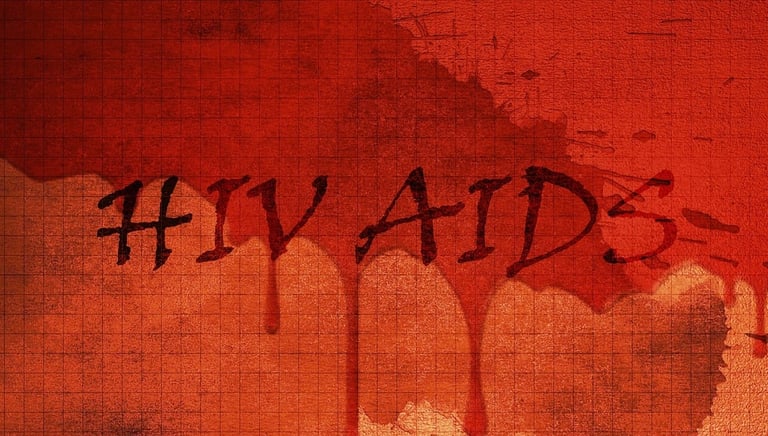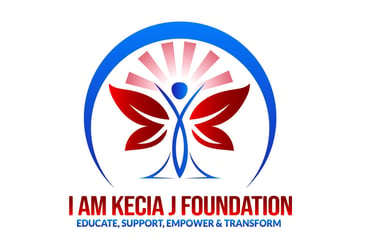



What is "Shift ATL"?
Atlanta remains one of the hardest-hit cities in the United States when it comes to HIV/AIDS, but the greatest obstacle to progress isn’t a lack of treatment or prevention tools. It’s stigma. Stigma, in all its forms, whether generational, trauma-based, cultural, or systemic; creates silence, fuels misinformation, and discourages individuals from seeking testing, prevention, or care.
Shift ATL is an initiative of the I Am Kecia J Foundation designed to confront this challenge at its source. Our mission is to transform how the city understands, discusses, and responds to HIV by addressing the underlying beliefs and barriers that keep people from taking action. By shifting mindsets, we can shift outcomes.
Through a comprehensive, citywide approach, Shift ATL focuses on four key strategies:
Education & Awareness: Delivering accurate, accessible information about HIV prevention, testing, and treatment through workshops, campaigns, and partnerships with schools, organizations, and healthcare providers.
Stigma Reduction at the Root: Facilitating conversations that unpack the cultural, generational, and trauma-based narratives that perpetuate fear and shame; also replacing them with empathy, understanding, and evidence-based knowledge.
Community Engagement: Collaborating with local leaders, businesses, faith communities, and advocacy groups to build safe, inclusive spaces where open dialogue and proactive care are normalized.
Empowerment Through Action: Encouraging regular testing, promoting prevention strategies, and connecting individuals to care without judgment or barriers.
Our goal is simple but ambitious: to help Atlanta evolve from a city burdened by stigma into a city that leads with compassion, awareness, and proactive public health action. Shift ATL is not just about reducing numbers; it’s about reshaping culture, restoring trust, and saving lives.
Together, we can build a future where every individual knows their status, seeks care without fear, and has the resources they need to thrive. It’s time to shift the narrative, and the Shift ATL initiative is leading the way.
Fulton County consistently ranks among the top U.S. counties for new HIV diagnoses.
In 2022, Fulton had one of the highest rates of new HIV cases in Georgia, with new diagnosis rates near 48.9 per 100,000 people.
Metro Atlanta’s HIV prevalence is among the highest nationwide; in Fulton County, estimates suggest as many as 1,802 cases per 100,000, a rate far above national averages.
In central Atlanta census tracts (overlapping Fulton and DeKalb), HIV prevalence is estimated at 1.34%, which meets the UNAIDS threshold for a “generalized epidemic” in that area.
The majority of new diagnoses in Fulton are among men who have sex with men (MSM) (≈ 93%) and people under 40 years old (≈ 70%)
Despite available medical advances, stigma, fear, trauma, misinformation, and generational silence remain powerful deterrents, leading many to avoid testing or delay seeking care.
Atlanta’s HIV epidemic is not only severe by the numbers; it is deeply rooted in social, cultural, and psychological barriers that prevent timely testing and care.
Root-level stigma intervention — we address the underlying beliefs, trauma, silence, and misinformation that keep people from getting tested or treated, via educational campaigns, community dialogues, and counseling models.
Targeted outreach and equity in access — prioritizing communities with the highest burden (e.g. younger populations, MSM, Black/African American communities), we will bring mobile testing units, pop-up clinics, and peer-driven outreach to break down geographic and social access barriers.
Partnerships & capacity building — working with local health departments, clinics, faith institutions, schools, and community organizations to embed routine HIV awareness, stigma training, and “normalized testing” protocols in everyday settings.
Linkage to care & support services — not just getting people tested, but ensuring those who test positive are connected rapidly to care, treatment, mental health support, and community resources in a judgment-free environment.
Data-informed advocacy & policy work — using local HIV statistics and lived experience to advocate for expanded funding, better prevention resources (e.g. PrEP access, at-home testing programs), and policies that reduce structural barriers (insurance, transportation, stigma protections).
In effect, I Am Kecia J Foundation is positioned not just as a service provider, but as a cultural and systems change catalyst; shifting how Fulton (and greater Atlanta) thinks about HIV, opening space for bold, compassionate public health action, and saving lives through awareness, dignity, and connection.


PROBLEM
SOLUTION




Contact
Get in touch with us
Phone: 404.947.4144
info@iamkeciajfoundation.org
© 2025. All rights reserved.
I Am Kecia J Foundation is currently being registered as a 501(c)(3) nonprofit organization. Contributions are tax-deductible to the extent permitted by law. No goods or services were provided in exchange for your contribution unless otherwise noted. EIN: 39-4821625


